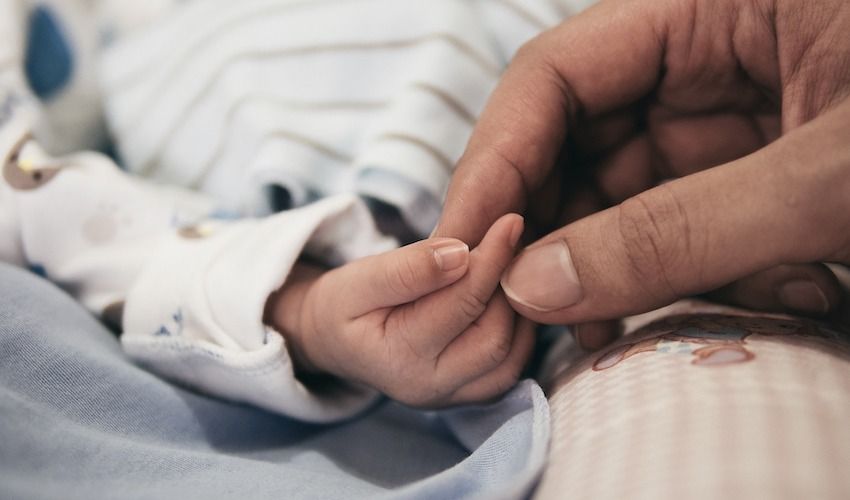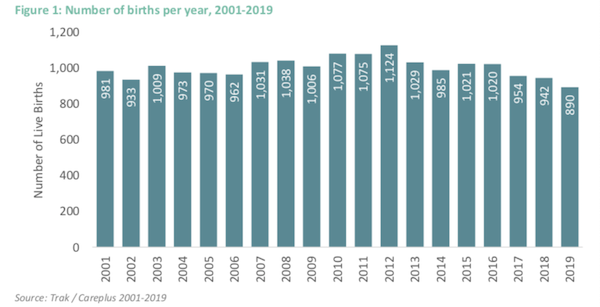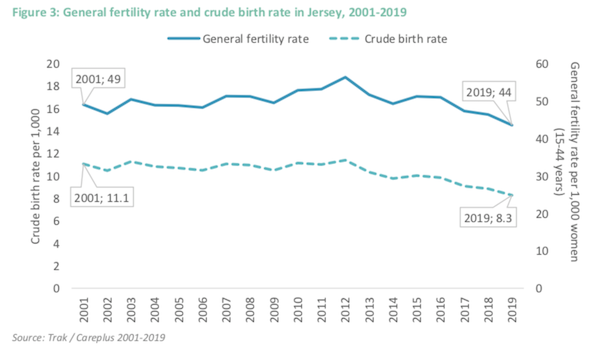


Jersey's birth rate has plunged to its lowest level in nearly four decades, with just 890 babies born in the island last year.
It was the lowest lowest number of births in Jersey since 1983, according to new data from Statistics Jersey.
Published last week, the 'Births and Breastfeeding Report' shows the number of births went down by around a fifth since its last peak in 2012.
In 2019, the proportion of live male births (55%) was significantly higher than that of females (45%), with 492 boys and 398 girls born.

Pictured: The number of births in 2019 was the lowest since 2012.
The report also shows that there were 44 births for every 1,000 women of childbearing age in the island last year.
Meanwhile, the total number of live births per 1,000 population declined in 2019, hitting 8.3, its lowest since at least 1950.
The total fertility rate – the total number of children born to a woman in her lifetime – also took a downturn. There were 1.32 births per woman, the lowest since the early 2000s.

Pictured: The general fertility rate and crude birth rate have both been declining.
The average of age of mothers has increased by around a year over the last decade, from 31.4 years to 32.5 years.
Between 2017 and 2019, the majority of mothers (64%) were 30 years or over while 28% were aged 20 to 29.
The proportion of mothers aged 35 years and over increased from around one in four (24%) in 2000 to one in three (33%) in 2019.

Pictured: Three quarters of babies were being breastfed as they left the maternity.
The report also included data on breastfeeding.
It showed three-quarters (75%) of babies were being breastfed as they left the maternity ward - a similar proportion to 2010.
The proportion lowered to 58% around six to eight weeks. At the one-year check, almost one in four (23%) babies were receiving breastmilk.
Comments
Comments on this story express the views of the commentator only, not Bailiwick Publishing. We are unable to guarantee the accuracy of any of those comments.